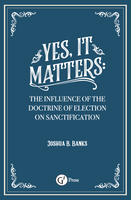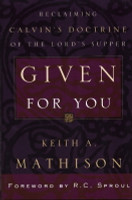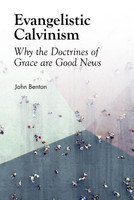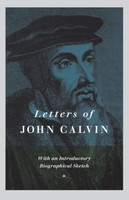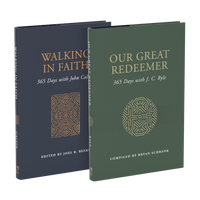
The Doctrine of Election (Calvin)
- Affordable shipping (free $100+)
- 100,000+ customers served
- "Wonderful books, great prices, awesome customer service." – Ivan, IL
Description
When Calvin says that he would not have spoken of election had Scripture not led the way, we need not doubt his word. If he defends the doctrine with vigour, it is because it runs as an unbroken thread through both Old and New Testaments. Like the doctrines of providence, atonement and the new birth, it is a doctrine of sovereign grace.
Calvin did not invent election: it is a doctrine which belongs to the universal church. Its importance for him lies in the fact that it anchors the work of redemption, not in our feeble powers of will, but in God’s inexplicable love for sinners, and it traces that work to a determination freely made in heaven before the world began.
The present volume offers a variety of sources, newly translated from the French, which throw fresh light on Calvin’s doctrine of election. In place of his more formal works such as the Institutes from which the doctrine is usually derived, texts have been selected which were intended for oral delivery to a largely non-specialist audience. The tensions inherent in the doctrine, such as God’s mercy versus his justice, are honestly acknowledged and answered. Throughout, appeal is made not to philosophical speculation but to God’s revealed word. To depart from Scripture, the Reformer holds, is to enter a labyrinth from which there is no way out.
There is no hint of bookishness in the texts presented here. This is theology for Everyman – clear, comprehensive and rich in practical application. And it leads, as all good theology should, to the praise of God’s glory.
Author
John Calvin - This French theologian and Genevan pastor is one of the most preeminent of all the 16th-century Christian reformers. After learning about Martin Luther’s teachings, Calvin passionately embraced Reformation beliefs, sharing his conversion story in his Commentary on the Psalms. Writing this book of Psalms commentary put Calvin at great risk, given that many of his fellow believers were being martyred at the stake for their beliefs. He was not daunted, however, and another of the John Calvin books is now known as Protestantism’s magnum opus: The Institutes of the Christian Religion. Additional books of note include A Guide to Christian Living, which offers clear direction to believers, and encouragement to everyone wanting to live according to the Gospel; and Truth for All Time, this book written to show French monarchs the beliefs of Protestants in the country.


